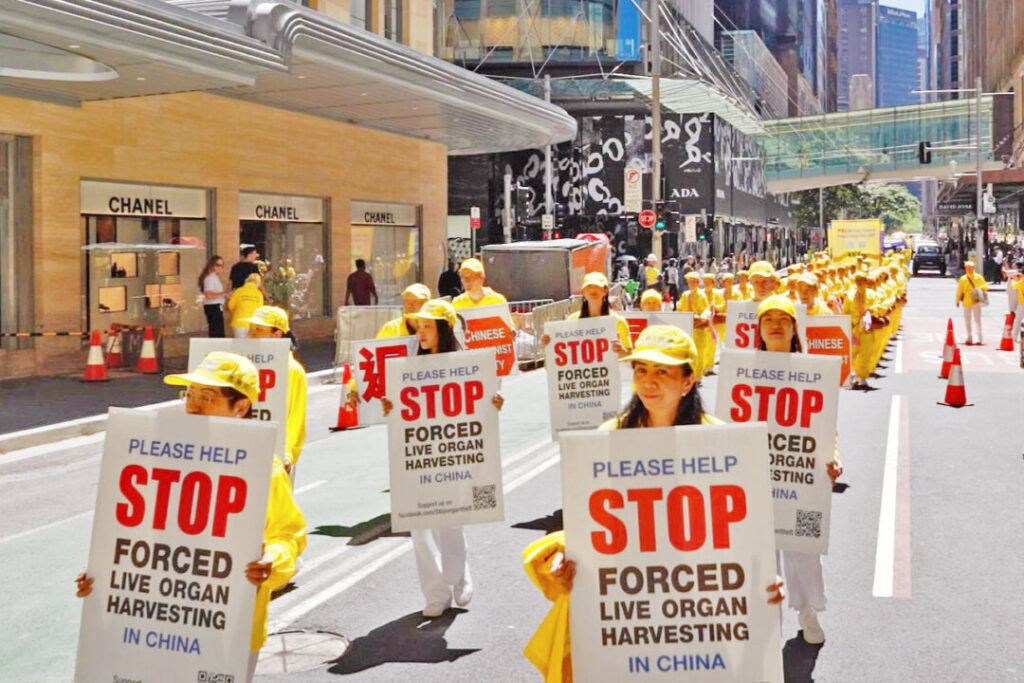
Concerns are escalating regarding Queensland’s engagement with the Shanghai Renji Hospital, which is reportedly linked to mass organ harvesting practices. Legal experts and human rights organizations are urging the Queensland government to reconsider its collaboration with this facility, described as “the largest liver transplant centre in China” and the “largest pediatric liver transplant centre internationally.”
Official reports from Shanghai indicate that the hospital, also known as the Shanghai Organ Transplantation Institute, conducts pediatric living-donor liver transplants. A press release from the Queensland state government, however, did not mention any plans for medical cooperation. Instead, it highlighted objectives related to increased exports and participation in an upcoming expo. Despite this, The Epoch Times has learned that a delegation led by Trade Minister Ros Bates explored potential training and clinical trial collaborations with Renji Hospital. This engagement has drawn scrutiny due to the hospital’s connections with the Chinese Communist Party (CCP) and its controversial transplant practices.
Legal experts caution that engaging with the Shanghai Renji Hospital poses significant human rights risks. In a joint statement, the International Coalition to End Transplant Abuse in China and Be Slavery Free warned that the hospital’s involvement in transplant medicine raises serious ethical questions. The groups emphasized that while the minister discussed opportunities in professional development and hospital management training, the lack of clarity regarding transplant-related activities could expose Queensland Health to reputational and legal risks.
Concerns are particularly focused on the potential for training surgeons who may participate in unethical organ transplant procedures, or providing medical supplies used in illicit transplants. Reports have documented the CCP’s involvement in forced organ harvesting from various groups, including executed prisoners, practitioners of Falun Gong, and Uyghurs. This alarming context has prompted calls for the Queensland government to pause any future negotiations with Renji Hospital until an independent ethical and human rights review is conducted.
“No medical collaboration should proceed in the dark,” stated David Matas, a Canadian human rights lawyer and Nobel Peace Prize nominee, during a recent visit to Australia. He highlighted that China’s transplant system operates with a significant lack of transparency and independent oversight. In this environment, partnerships could lead to complicity in human rights violations, potentially resulting in legal repercussions under international human rights frameworks.
The coalition and Be Slavery Free have called for Queensland officials to delay further discussions with Shanghai Renji Hospital until comprehensive expert advice is obtained. They advocate for a policy that restricts partnerships with institutions unable to demonstrate full transparency in organ sourcing. Distinguished Professor Wendy Rogers from Macquarie University echoed these sentiments, noting that while medical exchanges are not inherently problematic, the transplant practices in China violate international ethical norms.
In a notable conclusion, a 2020 report from the China Tribunal determined that the CCP had engaged in forced organ harvesting, particularly targeting detained Falun Gong practitioners and Uyghurs. The tribunal characterized these actions as crimes against humanity, emphasizing the scale of these abuses. It estimated that between 60,000 to 100,000 organ transplants are performed annually in China, significantly surpassing official claims and occurring amidst persistently low donation rates.
Despite a 2015 announcement aimed at ceasing organ sourcing from executed prisoners, no substantial legal reforms have been implemented. A legal opinion from the international human rights law firm Global Rights Compliance warns that governments must adhere to the U.N. Guiding Principles on Business and Human Rights when collaborating with regions where organ trafficking is a known issue. Institutions risk criminal liability if they engage in activities that facilitate or benefit from forced organ harvesting.
Human rights advocates have sought urgent meetings with Minister Bates and senior Queensland officials to clarify the safeguards and due diligence processes in place during the engagement with Renji Hospital. They seek assurances that no medical collaborations will proceed without full compliance with international transparency and accountability standards.
The Epoch Times reached out to Minister Bates for comments regarding discussions with the Shanghai Renji Hospital and the government’s awareness of the potential reputational and legal risks associated with such collaborations. As of now, no response has been provided.







